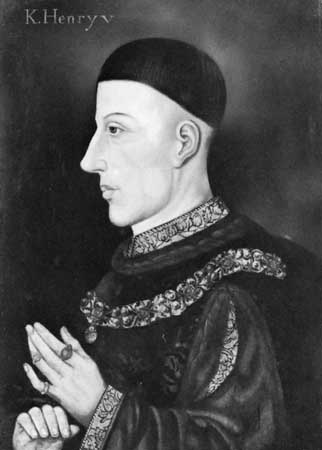Who is King Henry IV of England? As a lover of European history, I assumed I would know something about him. But I didn’t. I knew absolutely nothing. In fact, I only am familiar with his name because of his presence as the stabilizing protagonist and namesake of two of Shakespeare’s plays, Henry IV, Part 1 and Henry IV, Part 2.
Henry isn’t really an interesting figure of English history. He did not behead his wives, nor did he create the Church of England or win the War of the Roses. Yet Shakespeare devotes not one, but two history plays to this elusive historical figure. In Shakespeare’s time, Henry IV was already dead for two hundred years. Shakespeare bookends these two plays with Richard II, and Henry V, two more history plays creating a timeline of forty five years of monarchy, from 1377 to 1422. Why two parts for Henry IV? Why was he deserving of two completely separate plays. Shakespeare would popularize Henry IV for the Anglophone world and beyond, and his choice of monarch is intriguing.
Henry was a usurper. He invaded England, and took the crown after Richard II stripped him of his inheritance. His coronation in 1399, took place after the supposed willing abdication of his first cousin. He seized power. Henry took the throne, beginning his career as sovereign in a dramatic fashion. His reign would be littered by rebellions, yet his strong and forceful beginnings are a playwright’s dream.
Shakespeare’s first play does not tell the history of Henry’s usurpation, rather of a rebellion. Henry spent much of his time fighting against foes and friends turned foes, attempting to consolidate his power. The challenge to Henry’s authority by the Welshman Owen Glendower in 1400 lasted until 1403. Henry successfully suppressed the uprising, forced to focus on alternative problems plaguing England, like the Scotland question, or the everlasting French conflict.
Henry is an interesting character for Shakespeare because of his ability to seize and hold power. He usurps and resists usurpers in a manner not seen by other English Kings. His family, the Lancaster’s, hold power for almost a hundred years. However, the tension in Shakespeare’s play stems from the relationship between Henry and his son and heir. He, who will become King, an inherited crown, rather than one of a forceful takeover.
The tension between Henry IV, and Prince Henry, who will become Henry V, seems trivial during Shakespeare’s play, as power clearly lies with the father. However, in historical retrospect, we know that Henry V is remembered as a much better sovereign, able to consolidate power, win Parliament and the hearts of the English people in a way his father failed. Henry V would rule England at a pinnacle of early modern power.
It the lineage of the Lancaster’s that makes them appealing characters for Shakespeare. The playwright popularized monarchs—creating a public culture dedicated to their strengths as rulers. The plays highlight the Kings as strong leaders, taking power, consolidating, and quashing rebellions. They are English Kings to be remembered.
Sources:
http://www.royal.gov.uk/historyofthemonarchy/kingsandqueensofengland/thelancastrians/henryiv.aspx
http://www.bbc.co.uk/history/historic_figures/henry_iv_king.shtml
http://www.britannica.com/biography/Henry-IV-king-of-England
http://www.britannica.com/biography/Henry-V-king-of-England

